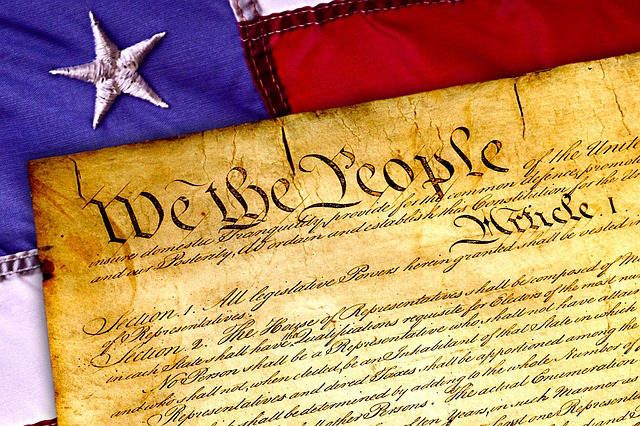Click here to subscribe today or Login.
Pop quiz: When did Sept. 17 become “Constitution Day” in the United States?
It’s a trick question. In 2005, the day was actually declared “Constitution Day and Citizenship Day.” The fact that it has been pretty much universally shortened to Constitution Day is testimony to the unnecessary complexity of the original title.
To make it perfectly clear, we are not disparaging the idea of declaring one day annually as a day to reflect on the founding document of our national government, or for that matter on the meaning of being a good citizen.
But “Constitution Day” has always been a problematic notion. The fact that most people likely don’t know that yesterday was it may be proof enough, but the odds are good that few people could say when it was created, much less how.
Constitution Day (we’ll use the shortened version of the official title for expediency and because, frankly, that’s what the law specifically addresses) began when the late Senator Robert Byrd inserted the idea into the congressional spending bill of 2004.
The law requires any school, college or university that receives federal dollars “to hold an educational program pertaining to the United States Constitution on September 17 of each year.” The reason for that specific date is simple: The Constitution was adopted Sept. 17, 1787.
The law is a reasonable idea, though reasonable people may question the value, much less the need for it. The problematic parts?
Schools should be teaching the Constitution anyway, and in fact most state education standards (if not all) require it in public schools. Indeed, good teachers using good curricula would be peppering many lessons across several subjects with references to the Constitution. The document permeates so many essential parts of life in this country it should be easy to touch on it.
If it was truly important to create the mandate of Constitution Day, did it not deserve to be presented on its own merits, as a separate bill? Burying it in a massive spending bill feels like — dare we say it — trying to do an end run around the Constitution. The legislative habit of tacking on amendments and riders to bills that have no relevance to said amendments and riders is as common as it is sneaky and undemocratic. Transparency seems like a fundamental component of a successful democracy. Let Congress and the public know clearly what is being voted on and why.
Besides, what sensible representative or senator would have voted against a bill declaring one day a year as Constitution Day, with a modest education mandate included? It may be unnecessary, but it’s also innocuous. And a no vote would certainly sound unpatriotic.
One last problem with Constitution Day: It doesn’t seem to mandate that legislators and members of the the executive branch spend even a few minutes attending any “educational program pertaining to the United States Constitution.”
Which seems a shame. Odds are our system of checks and balances through three equal but separate branches of government would work best if each branch more readily fulfilled responsibilities and respected limitations as spelled on in the U.S. Constitution.
— Times Leader





